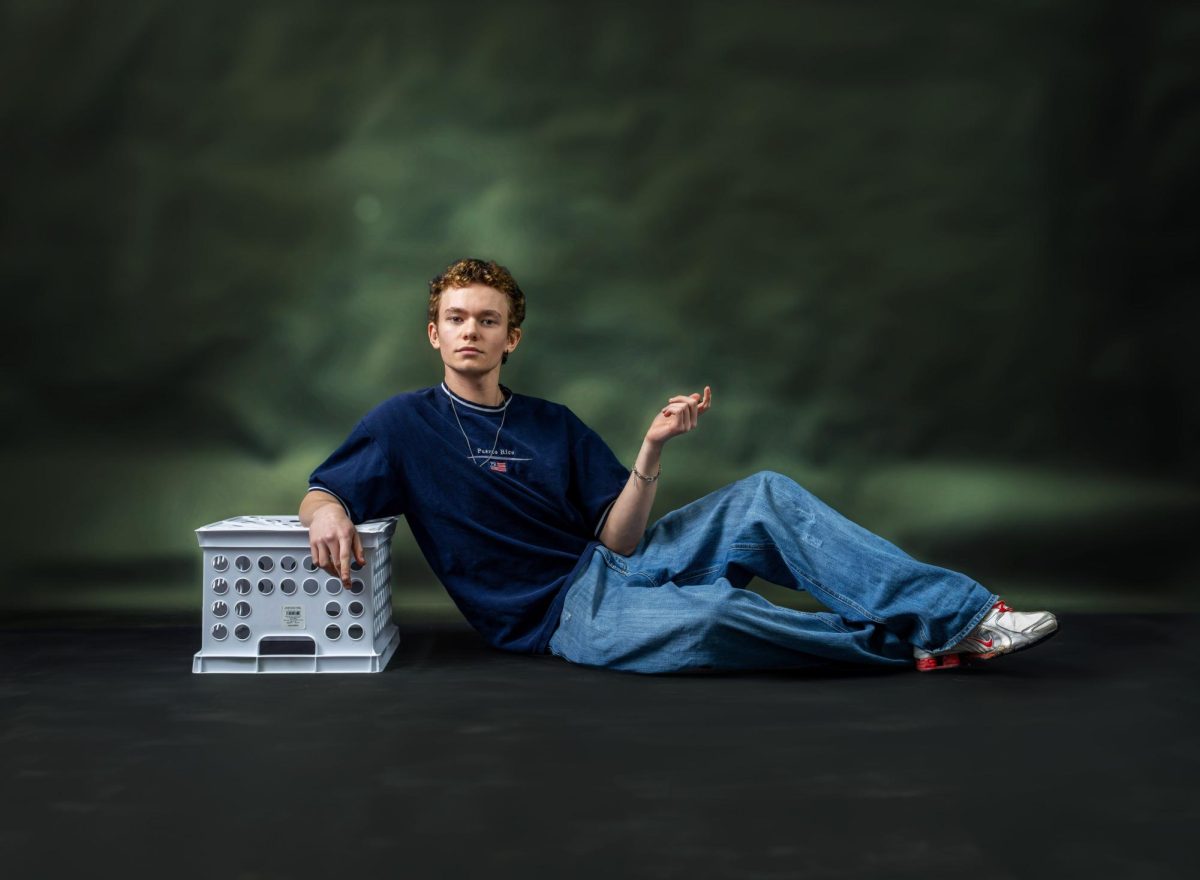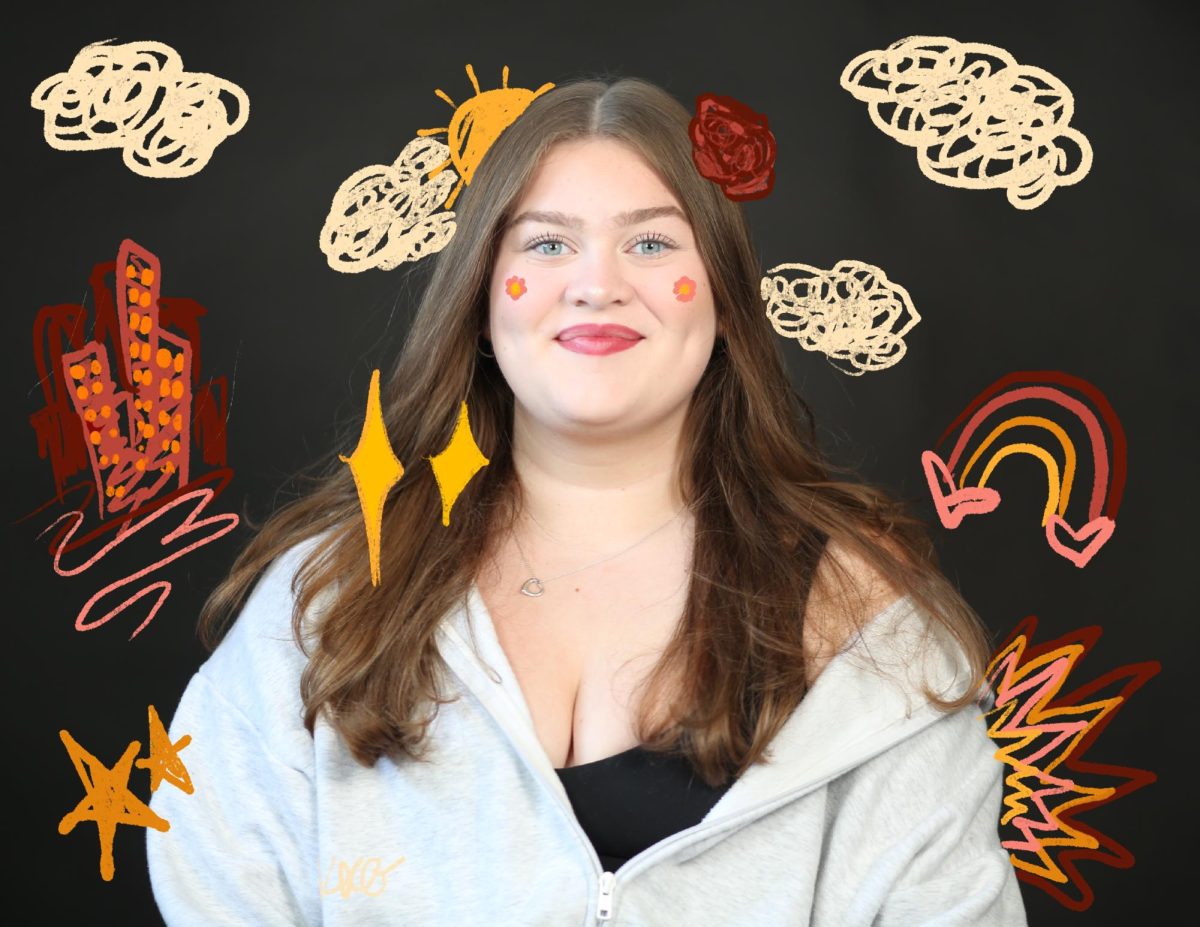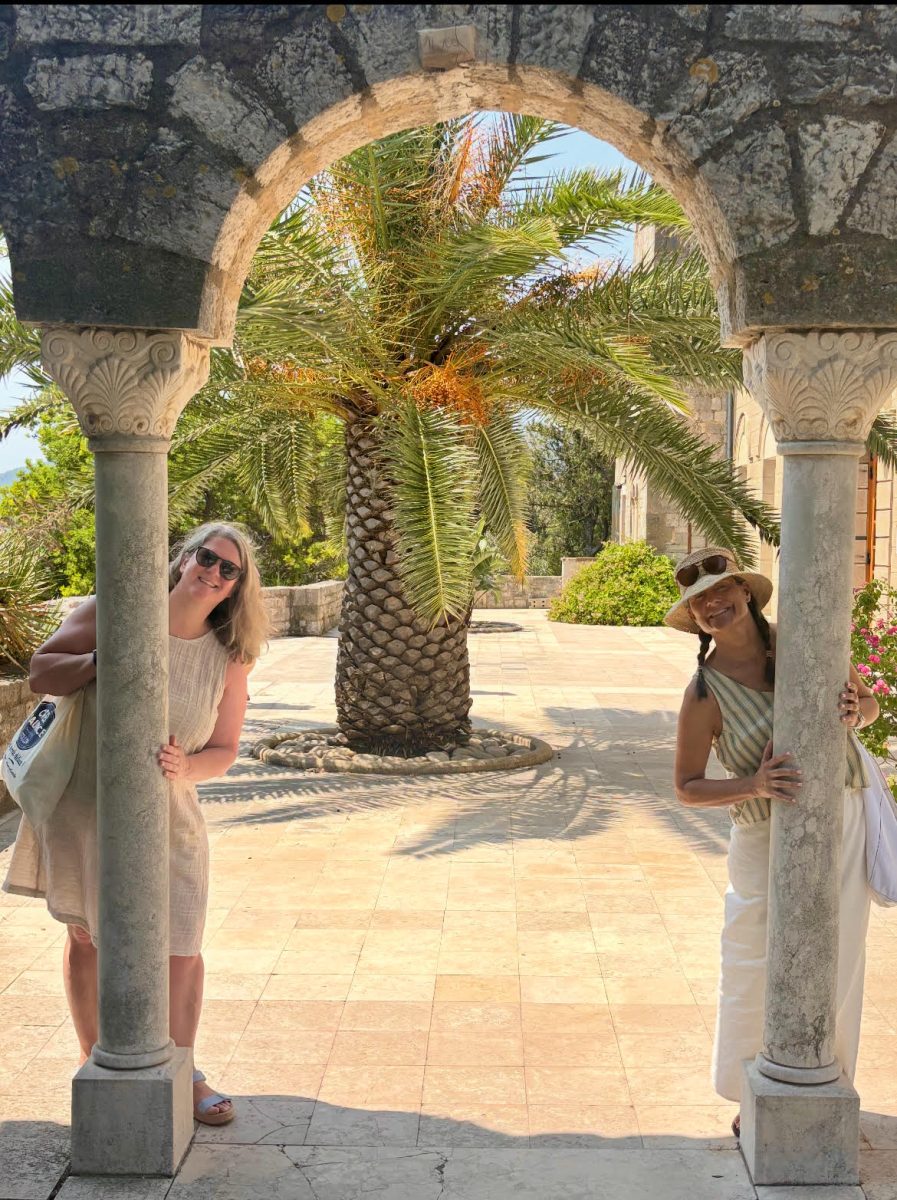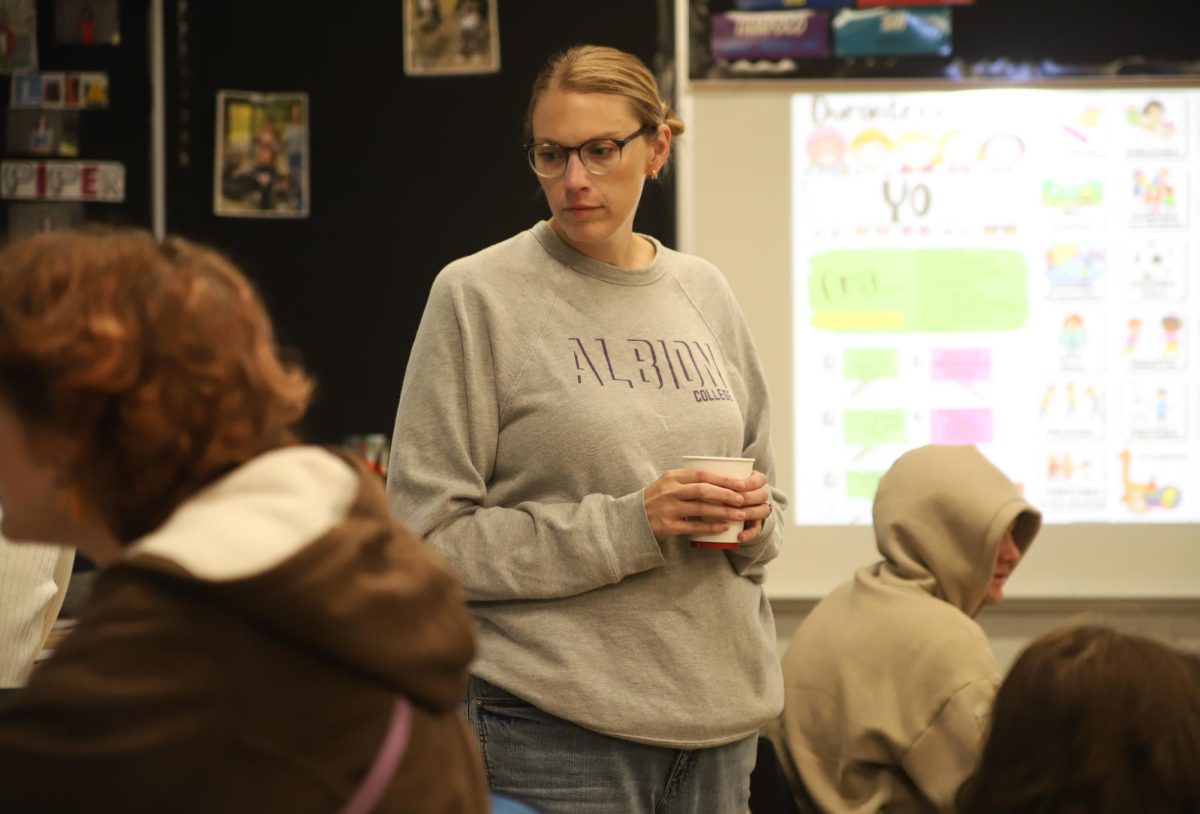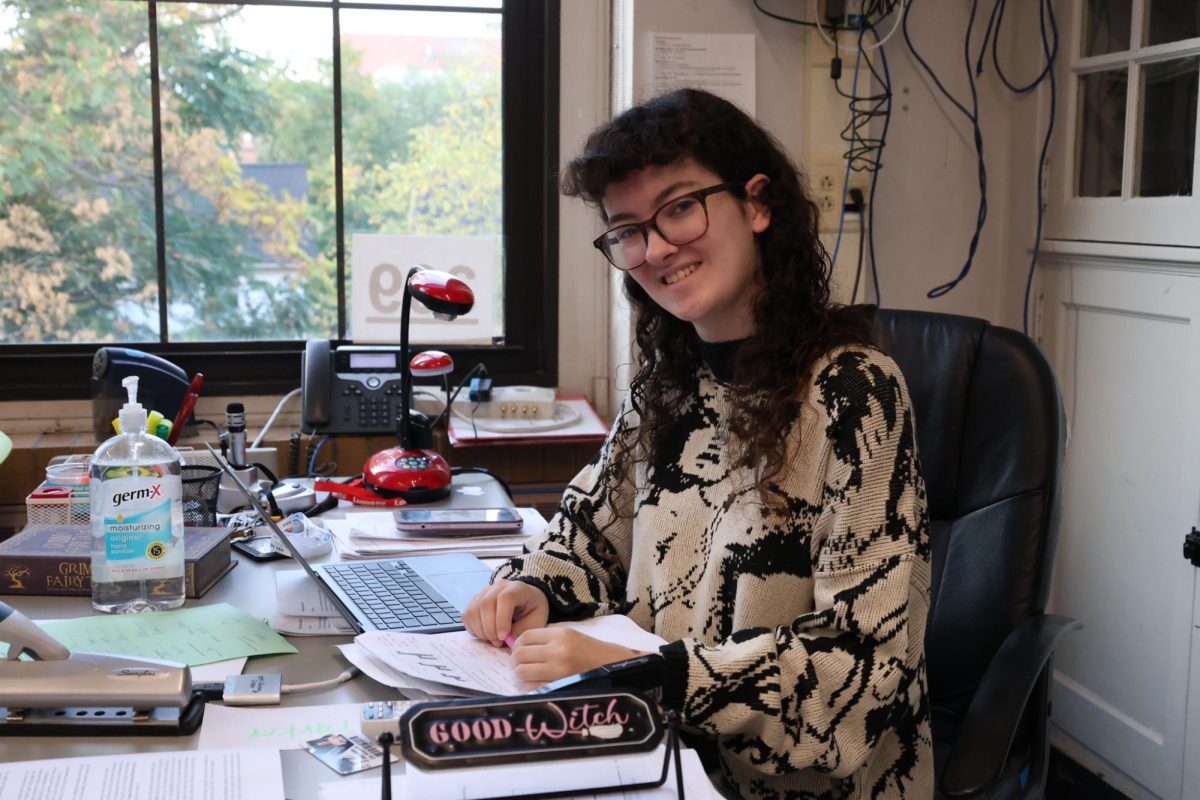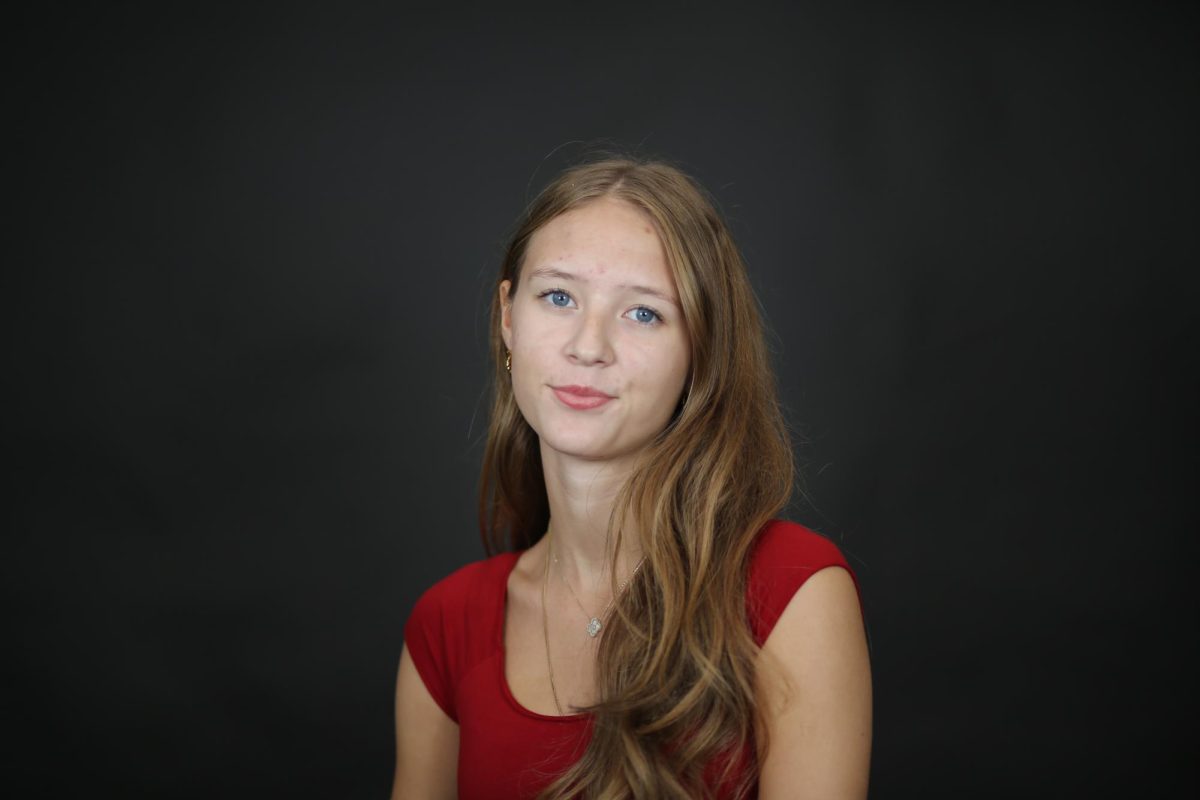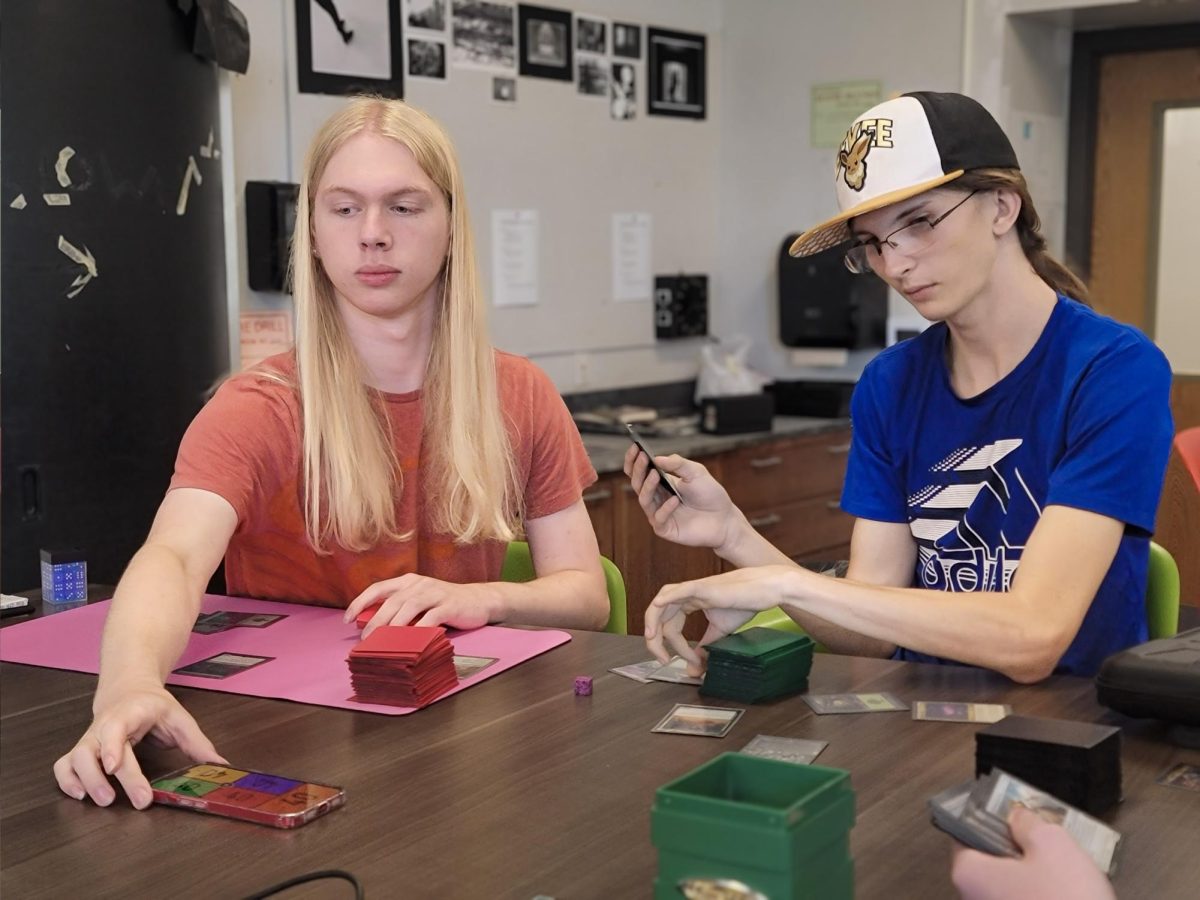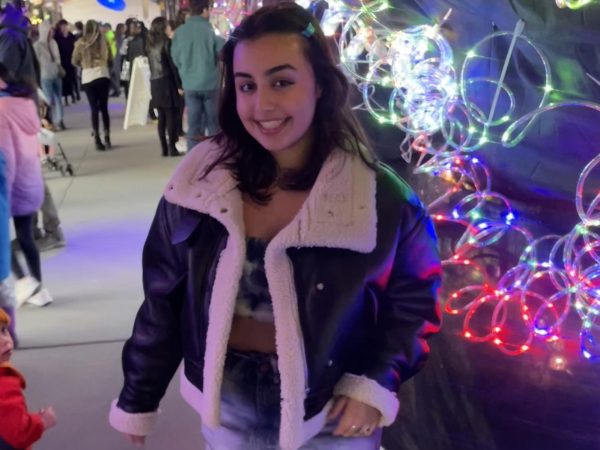Though he is dedicated to his craft, Rosenberg plays and creates mainly for his own pleasure. He does not suffer from the added pressure of pleasing an audience or building a career in music.
Instead, Rosenberg simply plays and produces music because the music brings him joy.
“It’s my creative outlet,” Rosenberg said. “I can’t draw at all, I can’t cook really. So, different things that people do to express themselves don’t really work for me, but the production I kind of have a handle on and I’m able to create the sounds that I like.”
Because he creates solely for himself, Rosenberg is able to experiment and create complex and non-traditional beats with his production. Even when producing on artists’ projects, including his classmate, Elias Kirsch (otherwise known as Big Planet), Rosenberg strives to incorporate his own style.
“I think I really challenge him because me and him listen to very different music, and our influences are different,” Rosenberg said. So, when I work with him, I really challenge the way that he does rap.”
Rosenberg referred to one particular collaboration: Big Planet’s song “Whispering” off his 2023 album, “Independent Love.”
“It’s a very slow, kind of warm, thick sound,” Rosenberg said. “It really challenged the way that he made music, which is great. I like it when artists are able to escape a box that they’re in and they’re able to just kind of explore different things. I’m happy I’m able to provide those sounds for him.”
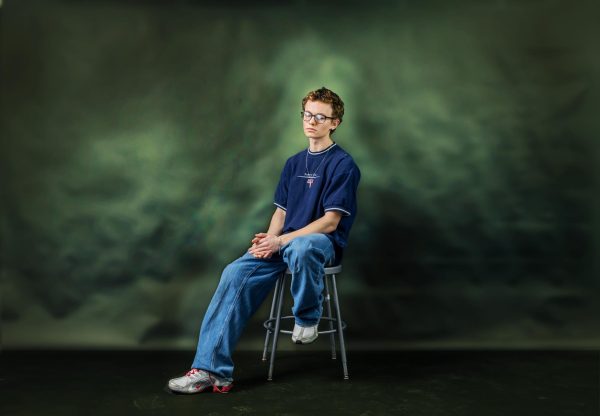
Rosenberg’s sound is heavily influenced by his jazz background.
Originally, Rosenberg began playing piano around the age of seven at the encouragement of his parents, but he quickly fell in love with the instrument.
Then, freshman year at CHS, Rosenberg was introduced to jazz piano through the CHS jazz program. He was first placed into Jazz III, then advanced through jazz lab and is currently in Jazz IV.
“Jazz has definitely influenced the way I create music,” Rosenberg said. “Both in the way that it’s taught me theory that I didn’t know, different rhythms that maybe I wouldn’t have been thinking of, or different note choices and harmonies that I now can be very deliberate about using. But, I think it’s more than that. It’s really expanded the music I listen to.”
Rosenberg finds listening to jazz music outside of class is crucial to keeping up with the rigorous program. Additionally, it provides him with a plethora of material to sample when producing.
“If I want to have a cool drum break that I know from a specific jazz song or there’s a cool chord progression,” Rosenberg said. “I just have access to this bank of songs that I didn’t have access to before.”
Boom bap style hip-hop artists often sample 70s era jazz because of its groovy nature. Rosenberg, however, will even sample 20s and 30s jazz on his songs in order to capture the interesting vinyl quality of the recordings. While Rosenberg enjoys sampling jazz on his own, he understands that when collaborating with a hip-hop style artist, it can be difficult to work with jazz.
“I think honestly, sometimes, it’s hard for people to use the super jazz influenced stuff,” Rosenberg said. “Because a lot of people tend to be attracted to this very heavily, electronically produced sound, which is really cool, but not necessarily jazz influenced.”
When producing for other artists, Rosenberg does still manage to incorporate jazz samples while maintaining a more traditional hip-hop sound. For example, the intro of Big Planet’s aforementioned album, “Independent Love,” was produced by Rosenberg and features a jazz sample.
“You wouldn’t even necessarily know that I sampled a jazz song,” Rosenberg said. “But it’s in there.”
These subtle hints of jazz pop up throughout the album in the form of background melodies or drum samples taken from a jazz kit.
While his journey with piano began at the hands of his parents, Rosenberg began producing somewhat unexpectedly. One year, for Christmas, he was given a DJ turntable that came with a key to Ableton, a popular DAW (digital audio workstation) for music production. Gradually, he switched over to using FL Studios, commonly used to make modern rap beats or trap sounds.
Now that he is comfortable navigating the software, Rosenberg is focused on exploring less mainstream sounds and incorporating them into his production style.
“I listen to a lot of producer-only albums,” Rosenberg said. It’s just a producer going crazy on a song doing what they know how to do. And these are super cool sounds that aren’t necessarily super mainstream, but they’re out there.”
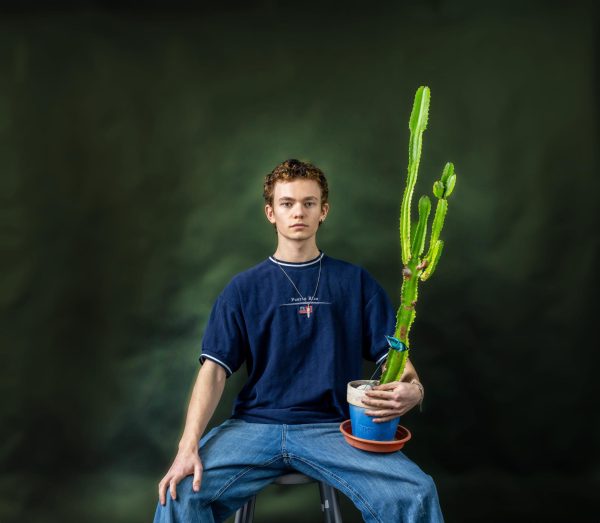
Rosenberg took his producing even further this past year, and participated in a CR course at the Neutral Zone, a youth driven teen center based in downtown Ann Arbor. Not only was he given access to a wide range of new equipment, Rosenberg was able to connect with other artists in a new way.
“You have to get perspectives from different audio worlds,” Rosenberg said. “The goal is obviously to make a sound that stands out and is new. And, if you’re able to appeal to a rock audience as well as a hip-hop audience, because you had influence from both, then you’re able to make something new.”
Whether he’s practicing jazz piano for hours in a day or staying up late producing with Big Planet, Rosenberg finds that music comes naturally to him.
“Music, it scratches the itch,” Rosenberg said. “Listening to it and hearing what other people have to say through their music is an experience that is beautiful and it’s very human. But then me personally, I am also able to enjoy the creative side of it and the creation of it.”



